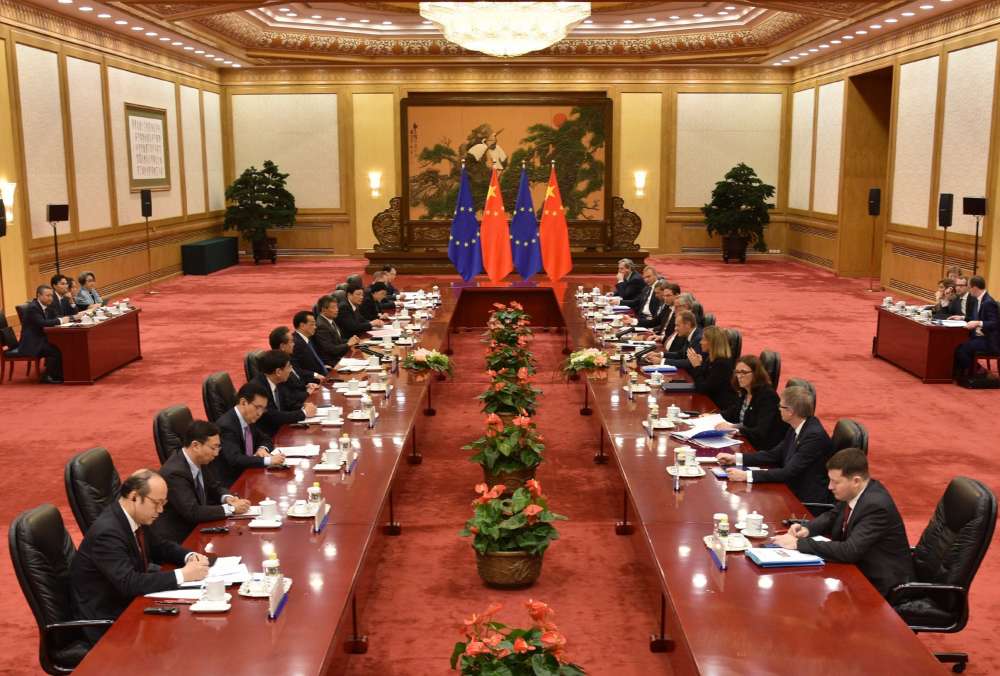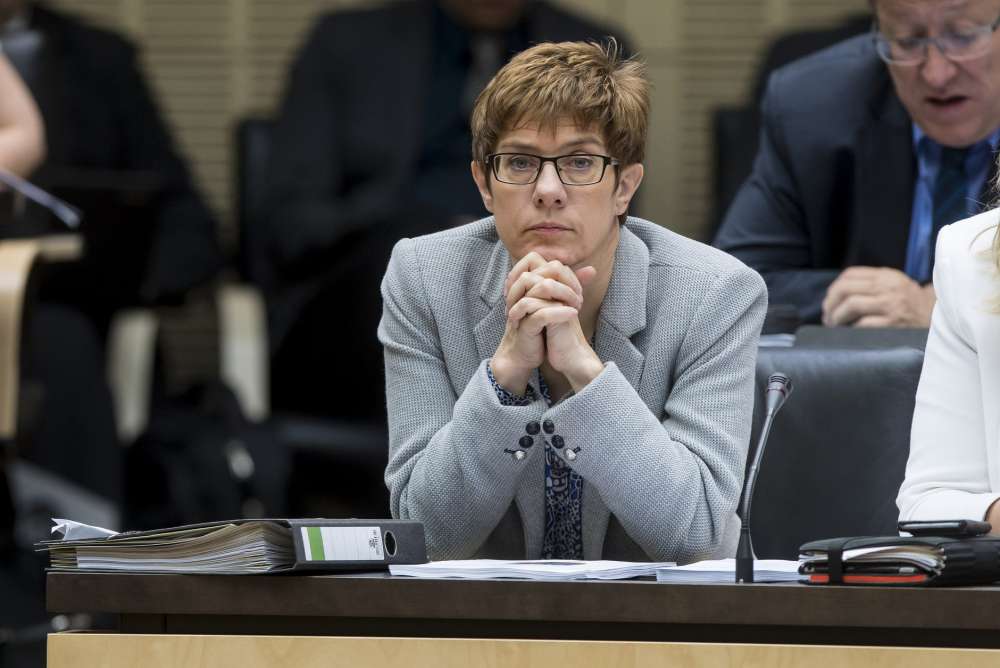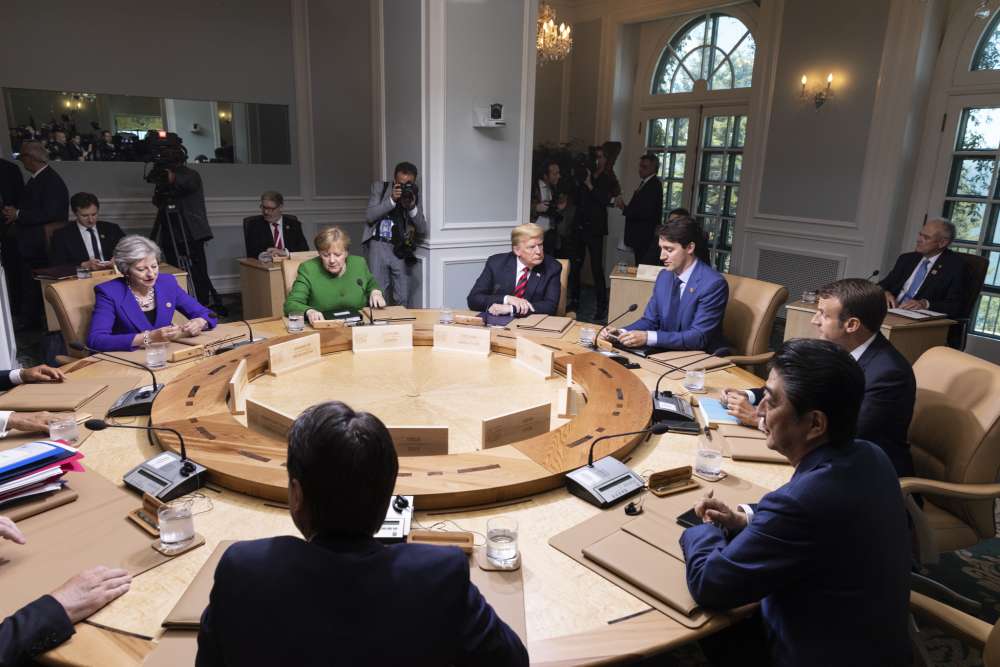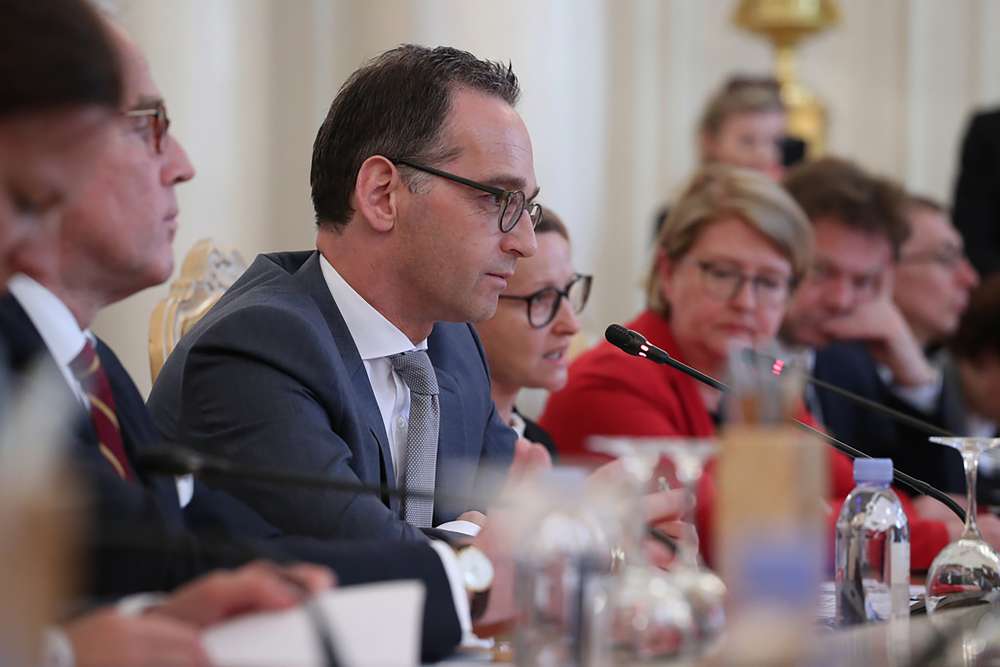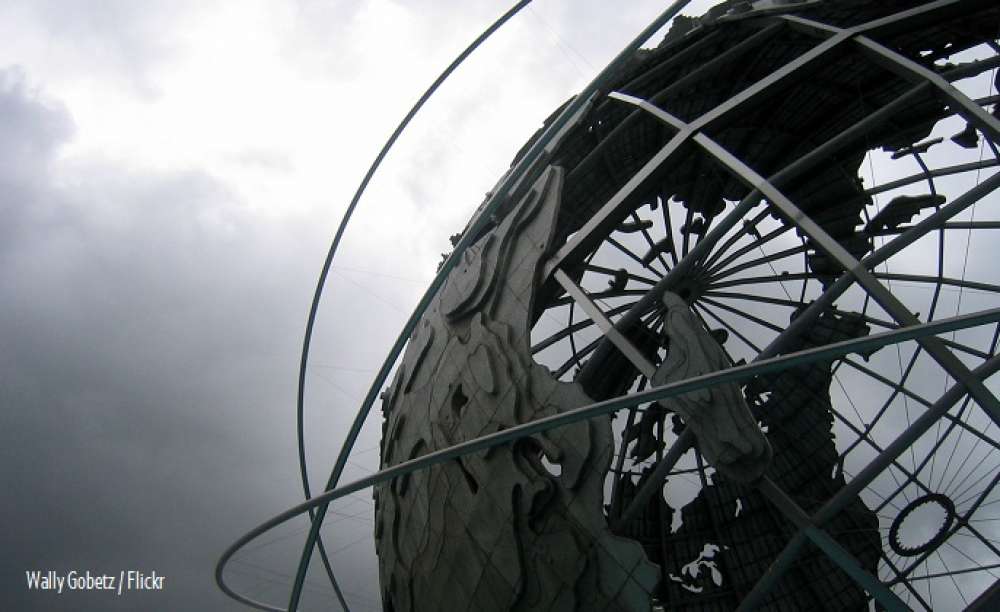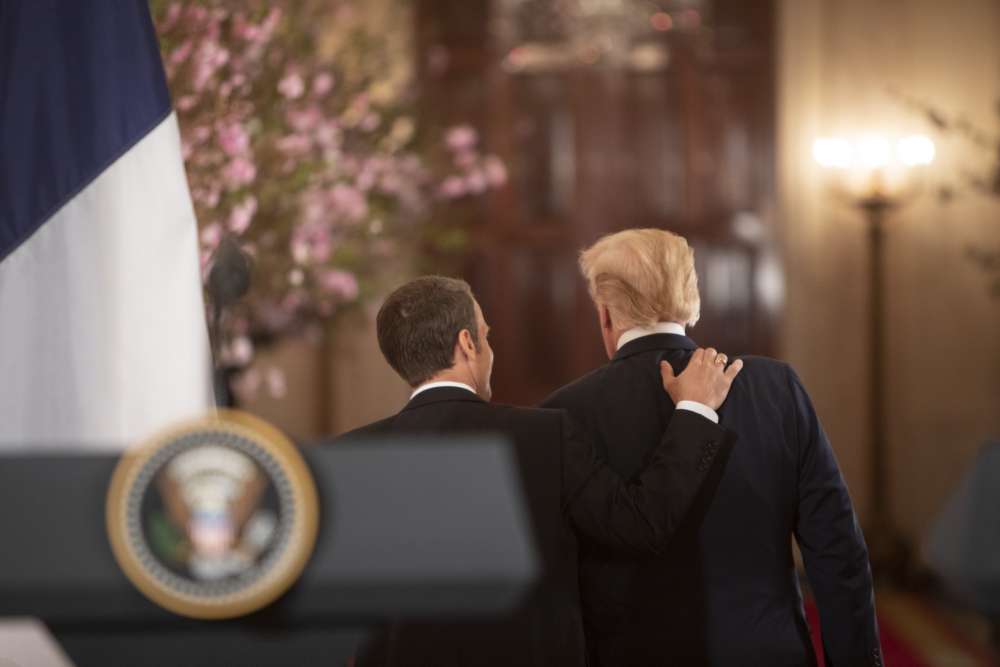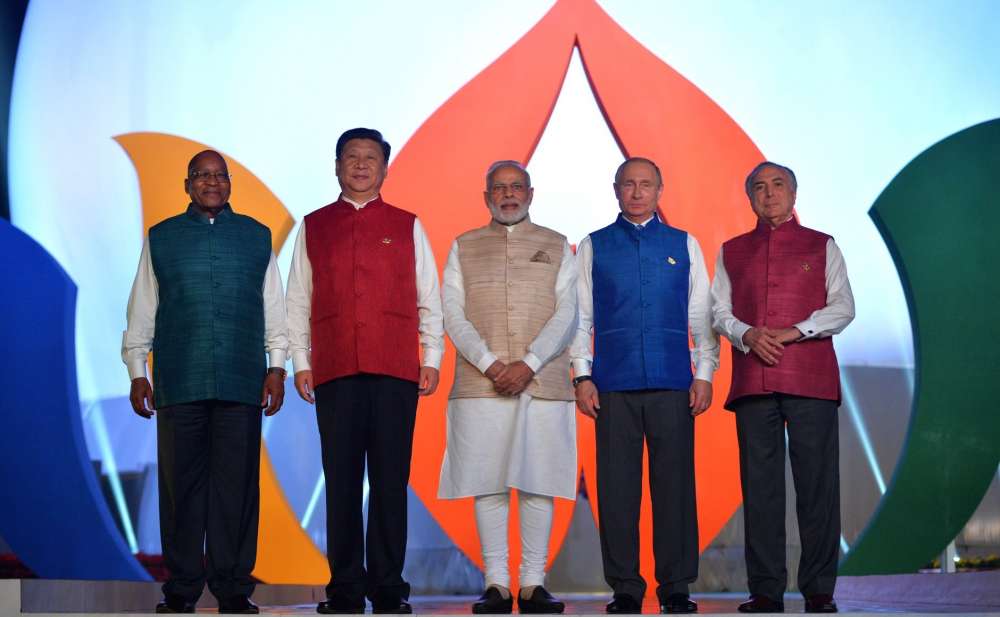Why Europe Should Give Up the IMF
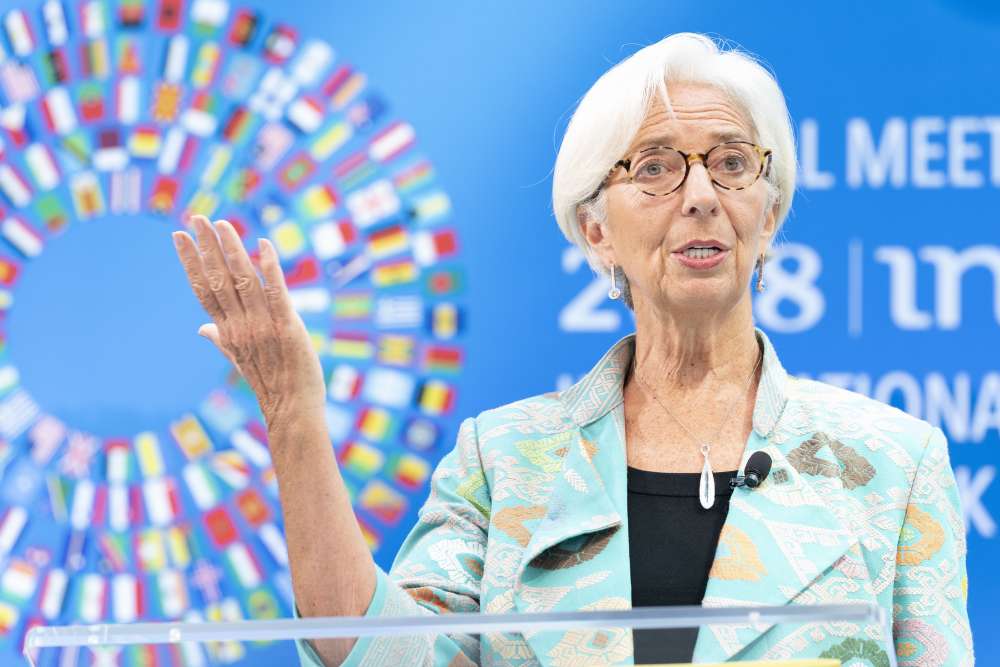
On Wednesday, European leaders are expected to make a play to keep the International Monetary Fund in European hands. When G7 finance ministers gather in France, EU countries will likely unveil their candidate to succeed Fund chief Christine Lagarde when she steps down to become president of the European Central Bank this fall.
That would be a grave mistake. Europe should instead relinquish its permanent claim to the IMF’s top job — for its own sake.
Insisting on the right to appoint the Fund chief is a privilege completely out of touch with how the European Union should want to be seen around the world. EU members would be better off supporting an open search process for an outstanding non-European to be next IMF leader. After a few cycles, qualified Europeans could apply again.
All of the IMF’s 11 managing directors since 1946 have come from Europe. This is the result of a transatlantic agreement that in turn guaranteed the U.S. a lock on the leadership of the World Bank.
Earlier this month, France and Germany moved quickly to defend the EU’s claim to the IMF top job. “It is in the interests of Europe to keep the leadership at the IMF,” French Finance Minister Bruno Le Maire declared soon after the news broke of Lagarde leaving her position early.
Le Maire pushed for a quick agreement on a single EU candidate “without useless rivalries.” German Chancellor Angela Merkel strongly echoed the French position that ”there is a European claim to naming the president of the IMF again.” And she appeared full of determination to vigorously defend Europe’s privilege: “The world has changed, so we will need to fight for that.”
It was a rare, decisive show of Franco-German unity that has managed to pull other EU members along. Too bad it’s for the wrong cause. Perpetuating the claim to IMF top job flies in the face of European credibility as promoting a fair multilateral order.
Ten years ago, at the G20 summit in London, Europe and the U.S. agreed “that the heads and senior leadership of the international financial institutions should be appointed through an open, transparent and merit-based selection process.” This reflected a strong concern by non-Western powers over privileges from the 1940s that are out of touch with today’s realities.
In the decade since, the U.S. and Europe have broken that promise time and again. In 2011, Europe installed Christine Lagarde as IMF head and ensured her reelection in 2016. The U.S. in turn has insisted on naming the World Bank chief. Earlier this year, when Jim Yong Kim announced his resignation as World Bank president, the Trump administration did not flinch and installed David Malpass, a U.S. Treasury executive, at the top of the institution.
Why should Europeans care about a 10-year-old promise in a world dominated by ruthless leaders such as U.S. President Donald Trump, Chinese President Xi Jinping and Russian President Vladimir Putin? Certainly not in the expectation that the White House, the Chinese one-party state or the Kremlin will be grateful and nice in return.
The great powers are not the relevant audience — but rather the many countries, from Argentina to South Africa, that are neither part of the old transatlantic club nor great powers. It’s the support of such countries that the EU depends on when looking for allies committed to multilateral problem-solving rather than seeking geopolitical and geoeconomic advantage through brute coercion.
And these countries’ patience with Europe clinging to its old privileges has long worn out. How can EU members such as Germany and France defend their claim to IMF top job and at the same time credibly push — in the words of the French and German foreign ministers — for an “alliance for multilateralism” in the hope of attracting non-Western countries to make international institutions more “efficient, representative and agile?”
Fortunately, since 2016 there is in theory already a process in place to select the IMF head in a merit-based and open manner. Individuals can be nominated by the IMF’s governors and executive directors. Shortlisted candidates are then interviewed by the IMF board, which makes a final decision.
This process just needs to be applied. Europe should therefore support the non-European candidate best qualified to reinvigorate the IMF.
“The key challenge for the next IMF head is how to maintain the institution’s relevance, influence and legitimacy in a world where multilateralism is breaking down amid trade tensions and shifting geopolitical alliances,” former IMF senior official Eswar Prasad has rightly argued. “The IMF is the epitome of multilateralism in international finance, but it suffers from marginalization by the key advanced economies, a pool of resources dwarfed by global capital flows, and lack of trust among emerging market economies.”
Within this broader context, it is necessary for Europeans to quiz candidates about how they would handle a deepening eurozone crisis, for example involving Italy. Europe’s troubles do matter. After all, the IMF’s program for Greece was the largest in the Fund’s history.
But arguing that given the eurozone’s troubles the IMF head needs to be a European — as Merkel did in 2011 — is ludicrous. No other country or region has ever made a similar argument. And during the Latin American and Asian financial crises, Europeans certainly didn’t make the case that the IMF should be led by someone from the affected regions.
The world has indeed changed, as Merkel pointed out last week. It is just that she does not quite seem to understand exactly how, and how to best react.
Even if non-Western countries are too divided to unite behind a single candidate, it should not be assumed they condone the EU’s practice. “A lot more could be done, a lot more should have been done to persuade Europeans that this birthright is not a birthright,” widely respected South African finance minister Trevor Manuel said in 2011.
Before the global chorus gets even louder, it’s in the EU’s enlightened self-interest to give up the overcome privilege of naming the top IMF official. Failing to do so will only further undermine Europe’s credibility on the global stage.
…
This commentary was originally published by Politico Europe on July 16, 2019.

